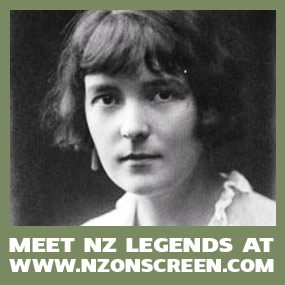Last week I attempted to present to the Social Services and Communities Committee dealing with the ‘Oversight of Oranga Tamariki System and Children and Young People’s Commission Bill’. I am troubled by the intention to disestablish the role of the Commissioner for Children. I decided to use the words of my elder brother, the late Laurie O’Reilly, who was appointed as Commissioner for Children in 1994 and who died in office in January 1998.
Had Laurie been alive he would have vigorously opposed aspects of the proposed Bill, most significantly the evacuation of the statutory role of the Commissioner. I drew upon an address Laurie delivered at the University of Canterbury in July 1997. He had been diagnosed with terminal cancer and had been informed he had only a few more weeks to live. Laurie determined to continue his passionate crusade for children’s rights until the last moment possible, and this address was one of a number delivered throughout the country following the diagnosis of his illness.
It was a lovely idea, but poorly executed on my part. I’d wanted to present ‘kanohi ki te kanohi’, face to face, but of course in these viral times Zoom must suffice. I had in the video-camera shot a newspaper clipping photo of Laurie. The notion was that it would be Laurie’s face that the committee members saw, and his words that they heard, but through my voice. I hadn’t appreciated the séance-like experience for the viewers.
The Committee’s gavel was in the hands of Anahila Kanongata’a-Suisuiki MP. Having learned I would be quoting directly from Laurie, Anahila initially attempted to shut me down. She said that I could only present my own views and I needed to permission if I was to use the material of another. I pointed out that my brother was dead. I have no Ouija board. If Laurie wasn’t dead, I wouldn’t need to be presenting. He would be there doing a much better job than me.
Perhaps conditioned by her Parliamentary experience, Anahila then attempted to go down another ‘shut down’ route, asking if the paper I was quoting from was published. Well, yes, it is. But, as I pointed out, its not likely that a Parliamentary researcher is going to go seek out views that oppose the Government’s intent. And indeed, when I looked at the composition of the Committee none were in Parliament when Laurie was in office. There is no institutional memory. And that’s the point. In his korero Laurie said:
“To understand the role and functions of the Commissioner for Children in New Zealand it is helpful to understand a little of the history that led to the creation of the Office.”
“The present CYPF Act was not the model promoted and supported by the Government’s own National Advisory Committee on the Prevention of Child Abuse and Neglect (established in 1981 and abolished in 1991)”.
“I was a member of that Committee and was involved in the consultative process and drafting of various legislative models. At the time there was a strong “anti-interventionist” mood in Parliament, influenced significantly by cultural issues. The mood was also anti-professional”.
“A National Committee for Child Protection was to be established to promote effective policies and practices with an emphasis on the prevention, identification, and treatment of child abuse. It was to have a co-ordinating role to ensure the co-operation and collaboration of services”.
“There was a very negative reaction to these proposals from the Department of Social Welfare, particularly from statutory social workers, which ran alongside criticism from Maori”.
“Departmental pressure effectively transferred the advisory function from the National Advisory Committee to a Departmental Advisory Group”.
“It is my opinion, that against that background of criticism and adverse reaction, from both sides, the Government seized upon the concept of a Commissioner for Children as the solution.”
“The Commissioner for Children is an integral part of a system of checks and balances that keeps the system honest.
“At one level, the Commissioner is part of the moral conscience for departments of State”.
“At another level, the Commissioner helps shape societal attitudes and acts as a champion for children in the wider community”.
“Politicians need to move from a siege mentality and a damage control mode of operation”.
“The solution for our children and our future lies in strong advocacy for children at all levels in a society that truly puts the interest of children first”.
So, there you are my brother, they’re still trying to pull the same old tricks. But in Aotearoa, “the best place in the world to be a child,” your voice still resonates.




















